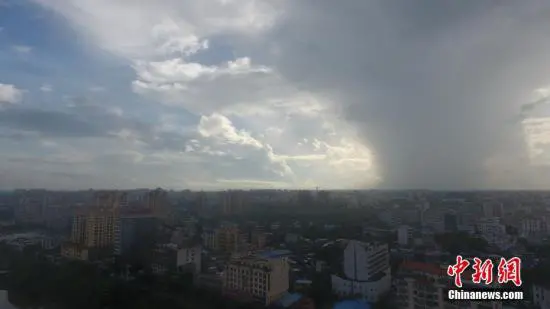Cyril Ramaphosa, a trade unionist turned politician turned businessman turned politician, is in pole position to become the new president of South Africa.
The reformist African National Congress (ANC) leader has promised a “new beginning” to replace "a period of difficulty, disunity and discord" after nine turbulent years under the leadership of Jacob Zuma, who the ANC has given 48 hours to resign or be recalled.
Who is Cyril Ramaphosa?
Ramaphosa was born in 1952 in Soweto, a township at the heart of the anti-apartheid fight. As a student his activism led to arrest and imprisonment, and after graduating as a lawyer he became a trade unionist. He served as general secretary of the National Union of Mineworkers in the 1980s and took on the same role at the ANC in 1991.
The 65-year-old served as Nelson Mandela’s chief negotiator in the talks that led to the end of apartheid in South Africa in 1994, and was at the South African talisman’s side as he addressed crowds in Cape Town on the day of his release from prison 28 years ago.
South African Deputy President Cyril Ramaphosa addresses a rally to commemorate Nelson Mandela's centenary year in Cape Town, South Africa, February 11, 2018.
Ramaphosa became an MP and chairman of the constitutional assembly and helped to craft South Africa’s progressive, post-apartheid constitution, but wasn’t nominated to succeed Mandela in 1999.
Although Ramaphosa remained on the ANC National Executive, he left frontline politics to enter the business world – with significant success. Forbes estimates his wealth at 675 million US dollars. He is now one of South Africa’s wealthiest men, having taken stakes in telecoms, media and mining companies. He also held the South African franchise of McDonalds.
Ramaphosa was hurt by his connection to the “Marikana massacre” in 2012, however, when 34 striking miners were shot dead by police and at least 78 more were injured. He was a director of the company that owned the mine, and had called for strong police action.
Ramaphosa-Zuma rivalry
Ramaphosa became ANC deputy leader in 2012 and then leader in 2017, and has served as deputy president since 2014.
Despite Ramaphosa serving as Zuma’s deputy, the men were pitted against one another in 2017 when the incumbent president backed Nkosazana Dlamini-Zuma – one of his former wives – for the ANC leadership.
Cyril Ramaphosa (L) and Jacob Zuma (R).
The leadership battle was bitter, with Ramaphosa running on an anti-corruption platform that was widely interpreted as an attack on Zuma. He also said he believed a woman who had accused the president of rape, despite Zuma’s court acquittal. He narrowly won the leadership, and subsequently piled pressure on Zuma as two power bases within the ANC emerged.
Ramaphosa has been tasked with unifying and revitalizing the ANC ahead of elections scheduled for 2019.
South Africa’s challenges
Ramaphosa has vowed to make good on his campaign promises to crack down on corruption, and has successfully pressed Zuma to establish an inquiry into “state capture” in South Africa.
Shortly after his election as ANC leader, he told the BBC: “Everyone agrees that our state was captured by corrupt elements, by people who purported to be close to the president, who have been doing really bad things getting into many state institutions."
A supporter of South Africa's ruling ANC holds up a shirt featuring Cyril Ramaphosa during a rally in Cape Town, South Africa, February 11, 2018.
As well as addressing corruption, a new leader must tackle a South African economy that has stalled in recent years, a soaring unemployment rate, and a major city –Cape Town – that will soon run out of safe drinking water.
In a speech on Sunday to mark 100 years since the birth of Mandela, Ramaphosa pointed to a more positive future. He called for South Africans to unite behind the principles espoused by the country’s former president.
“The key objective is uniting our people,” he said. “If you look at the way Mandela handled challenges in his presidency, he was always very careful. He put the interests of our people first and he was clear about uniting South Africans and uniting the ANC.”
(CGTN)
 简体中文
简体中文

